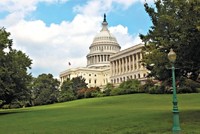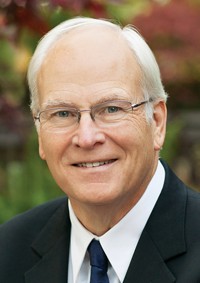Advertisement
Grab your lab coat. Let's get started
Welcome!
Welcome!
Create an account below to get 6 C&EN articles per month, receive newsletters and more - all free.
It seems this is your first time logging in online. Please enter the following information to continue.
As an ACS member you automatically get access to this site. All we need is few more details to create your reading experience.
Not you? Sign in with a different account.
Not you? Sign in with a different account.
ERROR 1
ERROR 1
ERROR 2
ERROR 2
ERROR 2
ERROR 2
ERROR 2
Password and Confirm password must match.
If you have an ACS member number, please enter it here so we can link this account to your membership. (optional)
ERROR 2
ACS values your privacy. By submitting your information, you are gaining access to C&EN and subscribing to our weekly newsletter. We use the information you provide to make your reading experience better, and we will never sell your data to third party members.
Programs
ACS issues policy statement on critical materials
Society supports more research on developing domestic sources of critical materials
by Linda Wang
January 30, 2021
| A version of this story appeared in
Volume 99, Issue 4

Critical materials, such as lithium, silicon, cobalt, and helium, are essential to the US’s economic growth and national security. These materials have multiple applications, including in consumer electronics, energy storage, transportation, and defense.
The US currently relies heavily on imports of critical materials from foreign countries, and this dependency makes the US vulnerable to supply disruptions caused by foreign government actions, natural disasters, and other events.
The American Chemical Society has issued a new policy statement on critical materials that supports comprehensive legislation to address these vulnerabilities, including investing in the sustainable development of domestic supplies of critical materials, increasing funding for the recovery and recycling of critical materials, and promoting greater collaborations among agencies. The new policy statement was drafted by the Committee on Environmental Improvement (CEI) and the Committee on Science and was approved by the ACS Board of Directors in June 2020 (ACS publishes C&EN).
“So much of our professional and personal life is based off of the manufacture of goods that require critical materials that we do not have sources of in the United States,” says Pete Smith, who led the CEI team in drafting the new policy statement. “We have to make sure that the United States has a supply of all these materials, and we need to be working towards finding alternatives that are either domestic or more sustainable and environmentally benign than our current sources.”
“This critical materials statement is a really outstanding example of how chemistry is the central solution to a lot of scientific problems facing government today,” says Chris Avery, chair of CEI.
ACS’s policy statements are the society’s official position on issues of interest to ACS members. ACS committees develop policy statements with member input, and statements that are approved by the ACS Board of Directors are active for 3 years before they are up for renewal or retirement.
ACS has 29 policy statements in four broad areas: fostering innovation through research and technology, strengthening science education and the scientific workforce, advancing sustainability and the environment, and promoting science in the public policy arena.
In addition to adopting the new policy statement, the society has revised five existing policy statements to clarify key points, although the specific policy recommendations remain mostly unchanged. These are the statements “Science and Technology in the Budget,” “Intellectual Property,” “A Competitive U.S. Business Climate: Innovation, Chemistry, and Jobs,” “Visa Restrictions and Scientific Progress,” and “Sustainability and the Chemistry Enterprise.”
ACS extended five statements for 3 years with no changes. These are the statements “Importance of Hands-On Laboratory Science,” “Teaching of Evolution: Fact and Theory,” “Encouraging Americans to Support Professional and Educational Activities through Financial Donations,” “Freedom of International Scientific Exchange,” and “Scientific Integrity in Public Policy.” ACS retired its statement “Retirement Security.”
In related news, the society has released its 2021 public policy agenda. ACS is urging the Biden administration to work with Congress to pass a budget and approve appropriations that ensure continued funding for scientific research; create immigration and visa policies that support a diverse pipeline of foreign scholars, students, scientists, and engineers; take action to address climate change; and ensure transparency in when and how scientists can share their research.
ACS members can join the Act4Chemistry legislative action network, participate in their local section government affairs committee, and enroll in the ACS Chemistry Advocacy Workshop (see page 39). They can also offer input on statements up for revision. For more information, visit www.acs.org/policy.
ACS policy statements
Foster innovation through research and technology
“A Competitive U.S. Business Climate: Innovation, Chemistry, and Jobs”: Supports a fair and level playing field that enhances competition and stimulates R&D. Supports policies that foster the growth of small R&D businesses and encourage entrepreneurship.
“Energy Policy”: Endorses an energy policy that prioritizes energy efficiency and that includes the full life-cycle costs of energy sources in their market prices, including their impacts on human health and the environment. Encourages long-term orientation for both funding and incentives.
“Intellectual Property”: Encourages policies that improve granted patents’ quality and consistency and the patent process’s efficiency. Urges policy makers to support information technology upgrades to the US Patent and Trademark Office and support sustainable open-access initiatives. Promotes consistent application of trade-secret protections.
“Science and Technology in the Budget”: Urges policy makers to make investments in federal R&D funding to put the US at the forefront of R&D. Recommends strategies to ensure federal dollars dedicated to R&D are used as efficiently as possible.
“U.S. Innovation and Entrepreneurship”: Supports investment in a world-class workforce through education and training, long-term commitments to basic research and technology development, and the development of a sustainable infrastructure for innovation and entrepreneurship.
Strengthen science education and the scientific workforce
“Convention on the Rights of Persons with Disabilities”: Supports ratification of the Convention on the Rights of Persons with Disabilities and encourages international cooperation, the sharing of scientific knowledge, and R&D on assistive technologies in carrying out the requirement to implement the means for equal access to medical facilities, education, workplaces, and communication technologies.
“Employment Non-discrimination”: Recommends federal legislation to extend employment-discrimination protection to include sexual orientation, gender expression, and gender identity.
“Healthcare Policy”: Supports health-care policies that focus on preventive care, availability and affordability of health plans, universal eligibility, portability of health coverage across state lines, and privacy of medical information.
“Importance of Hands-On Laboratory Science”: Supports hands-on activities in education and explores the proper role of computer simulations as a useful supplement to laboratory procedures but not a substitute for them.
“Science Education Policy”: Supports ensuring that all students understand science in accordance with national standards; modernizing learning environments; strengthening science, technology, engineering, and mathematics (STEM) teacher education programs; and nurturing students of all backgrounds, including from underrepresented groups, in pursuit of studies and careers in STEM.
“Teaching of Evolution: Fact and Theory”: Supports the teaching of evolution; opposes alternative, nonscientific theories; and urges states and localities to support high-quality science standards and curricula.
“Visas for Scientific Collaboration and Academic Study”: Supports visa policies that facilitate scientific education and exchange and welcome foreign scholars, students, scientists, and engineers. Supports timely and reasonable screening processes for visits, greater transparency of the application process, and the issuance and management of visas that are more aligned with the purpose of academic study and scientific exchange.
“Workforce Related Immigration”: Encourages continuing visa programs for students and corporations to transfer workers into the US. Supports simplifying employer-sponsored permanent residency for US-educated foreign nationals. Supports revisions to the H-1B visa process.
Advance sustainability and the environment
“Chemical Risk Assessment and Regulatory Decision Making”: Supports risk assessments that are based on sound science, that are protective of human health and the environment, and that include necessary information from the commercial chemical enterprise while protecting confidential business information.
“Critical Materials”: Encourages comprehensive research and workforce development to ensure the sustainable development of domestic supplies. Urges investment in research and development efforts and funding for the recovery and recycling of critical materials, and promotes updating US funding mechanisms to support interagency collaboration and outreach.
“Global Climate Change”: Reviews the science and recommends action on greenhouse gas reduction and climate change adaptation strategies. Encourages continued funding for research on the effects of climate change while also emphasizing the importance of educating the public on the issue.
“Inherently Safer Technology for Chemical and Related Industrial Operations”: Endorses federal support for research and development to expand inherently safer technology options and use.
“Regulation of Laboratory Waste”: Reviews the pitfalls of applying regulations meant for large-scale chemical manufacturing to laboratories.
“The Science and Technology of Hydraulic Fracturing”: Recommends researching fracking and its impacts from a life-cycle perspective and its uses compared with replacement resources, methane emissions at fracking sites, the causes and extent of groundwater contamination, less hazardous fracking fluids, and the characterization of and methods for treating and disposing of liquid returns from fracking.
“Sustainability and the Chemistry Enterprise”: Defines the concept of sustainability in the context of the chemical enterprise. Supports government incentives for sustainable technologies.
“Water Treatment and Conservation”: Supports US government action that develops water-use guidelines and initiatives; that encourages advancements in water reduction, treatment, and reuse technologies; that protects groundwater resources; and that prevents the discharge of toxic substances into ground and surface waters.
Promote science in the public policy arena
“Encouraging Americans to Support Professional and Educational Activities through Financial Donations”: Supports tax deductions for charitable contributions and the permanent extension of charitable rollover provisions for individual retirement accounts.
“Publishing: Ensuring and Expanding Access to High Quality Science”: Supports using sustainable publishing models that provide universal access to scientific research. Supports the 10 principles outlined in the Brussels Declaration on STM Publishing, as set forth by the International Association of Scientific, Technical, and Medical Publishers.
“Forensic Science”: Calls for scientific rigor, high-quality education, and standards in forensic science and for its integration with the broader scientific community. Backs evaluation and improvement of forensic analytical methods.
“Freedom of International Scientific Exchange”: Advocates freedom of scientific exchange and stronger scientific collaboration to benefit humankind.
“Peer Review: Ensuring Federal Support of High Quality Science”: Urges support for scientific peer review processes that evaluate grant applications on the basis of intellectual merit and broader impacts; these processes should be periodically evaluated for effectiveness, efficiency, and reviewer freedom from interference in scientific merit assessments.
“Preventing the Reemergence of Chemical Weapons”: Supports efforts to improve chemical safety and security and evaluation of alternative materials. Urges governments to prioritize actions to establish standards for responsible conduct, as well as to prevent the use of pharmaceutical compounds as weapons. Encourages the US to continue the strong support of the Chemical Weapons Convention.
“Safety in the Chemistry Enterprise”: Supports the use of risk-based criteria in creating safety regulations and policies, and continued funding of research to inform policy makers and stakeholders in the creation of those regulations and policies. Supports government implementation of regulatory policies that foster innovation within a safer chemical environment.
“Scientific Integrity in Public Policy”: Supports the use of insightful, comprehensive, scientific, and engineering input for the development and evaluation of policy options. Encourages scientific integrity policies that help the federal government obtain and integrate scientific assessments into policy development and implementation.




Join the conversation
Contact the reporter
Submit a Letter to the Editor for publication
Engage with us on Twitter